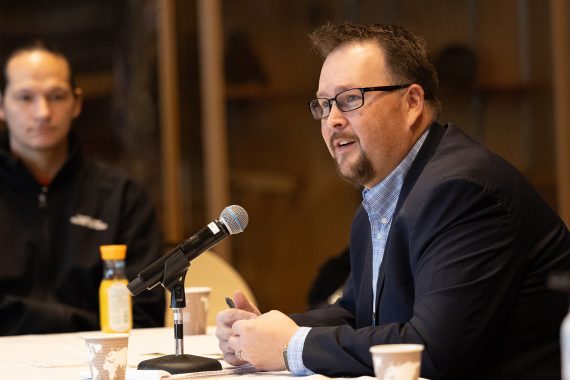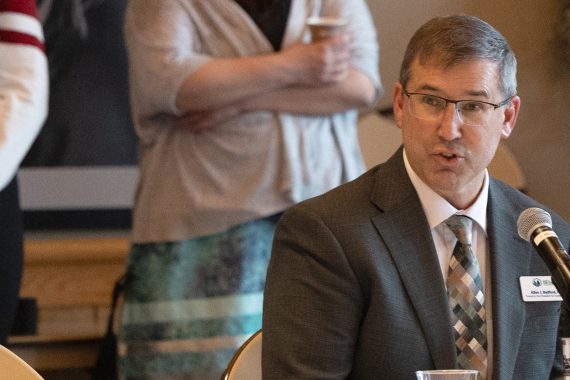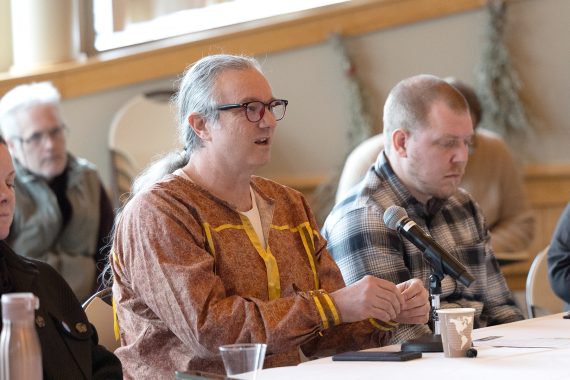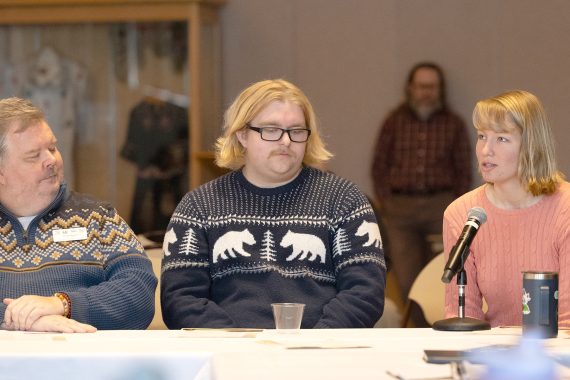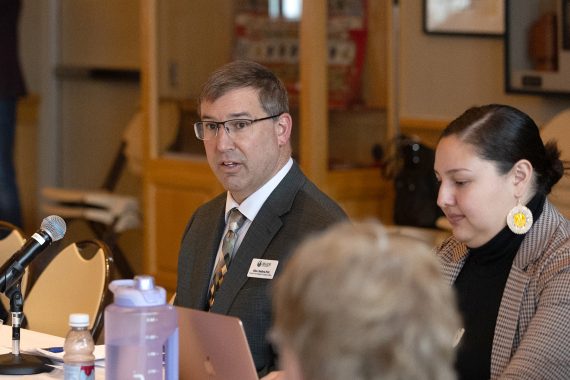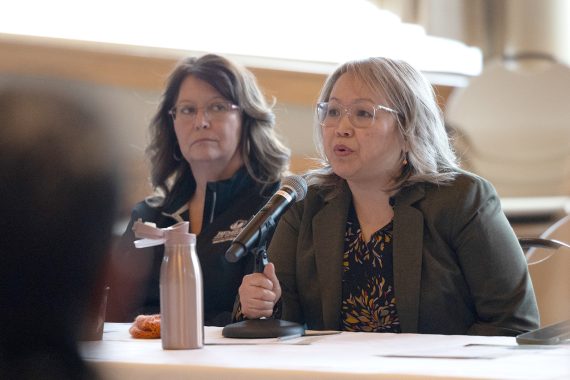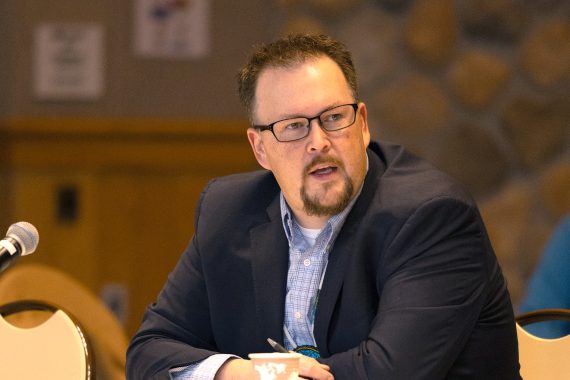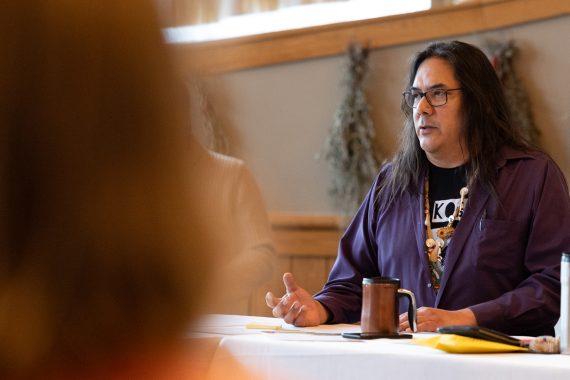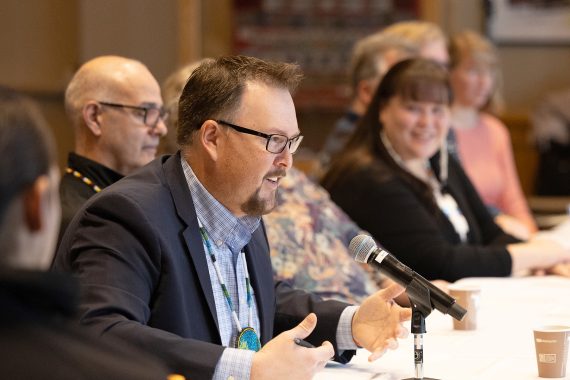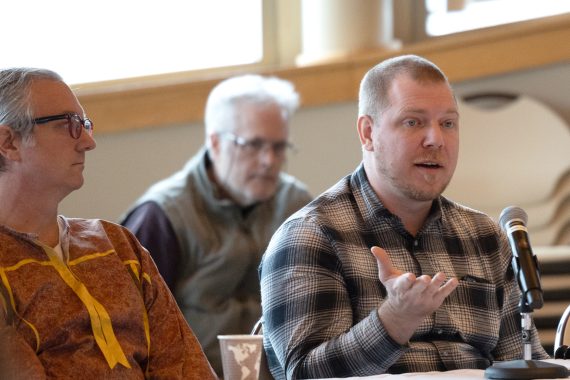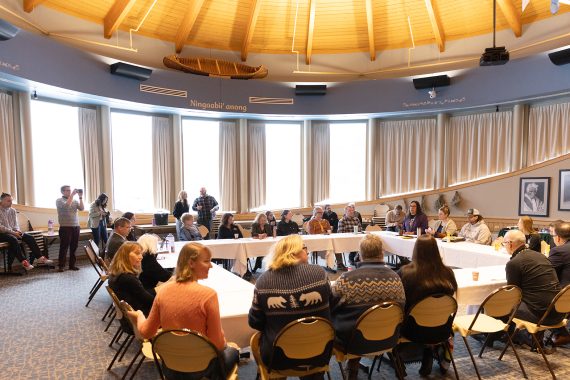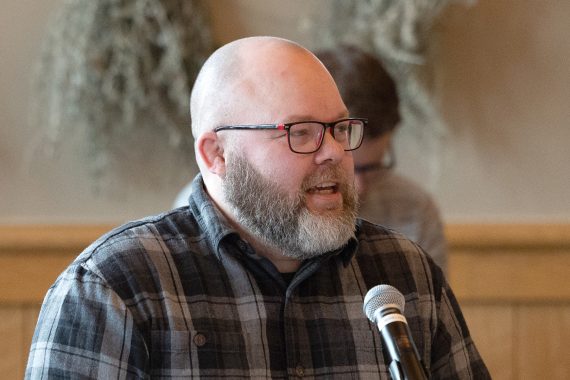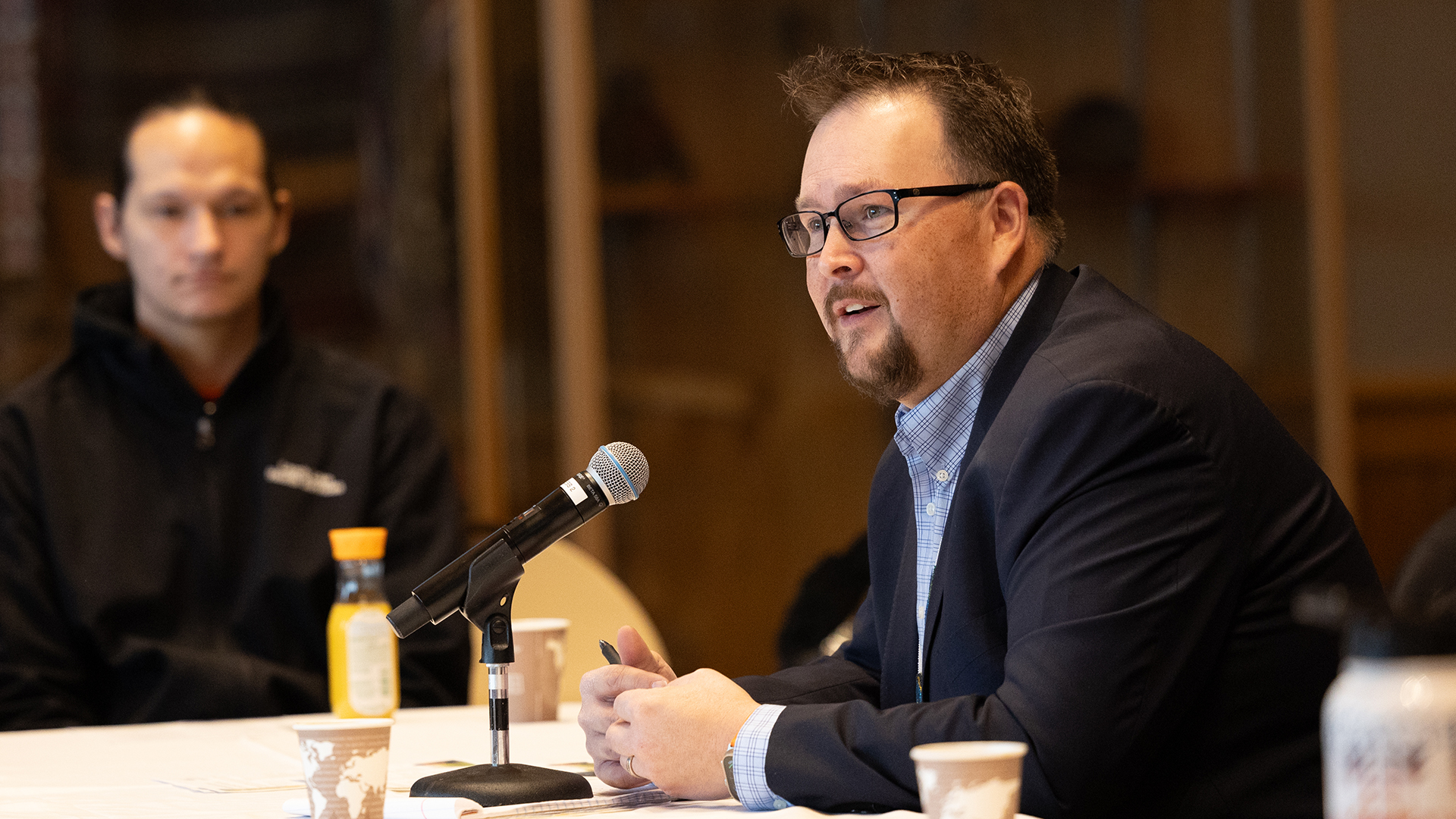
Dennis Olson, commissioner of Minnesota’s Office of Higher Education, visited Bemidji State University as part of a listening tour supporting Minnesota’s new American Indian Scholars Program and North Star Promise Scholarship, which he described as “…game-changing financial aid opportunities for students.”
Olson’s visit, February 27 at BSU’s American Indian Resource Center, afforded him with opportunities to hear directly from students, faculty and staff about how the new programs might impact higher education in Minnesota.
The American Indian Scholars Program provides full coverage of tuition and fees for any Minnesota resident who is an enrolled member or citizen of a federally recognized tribe or Canadian First Nation to attend a Minnesota State institution or the University of Minnesota. Any non-resident student who is an enrolled member or citizen of a Minnesota Tribal Nation is also eligible for the program.
The North Star Promise Scholarship similarly covers the cost of tuition and fees, but applies to all Minnesota families earning less than $80,000 per year.
Together, the programs could help more than 20,000 Minnesota students realize their higher education dreams.
“This is a very important and huge program,” Olson said.
He said his goal was to ensure that every student who is eligible to participate in these programs is able to access them fully and use them to remove barriers that might otherwise prevent them from attending college.
“Our intent is to remove as many barriers as possible — but especially tuition and fee barriers,” he said. “We want to see students taken care of during their entire college experience — including the sometimes unseen costs like living expenses, food, transportation and child care.”
The commissioner also expressed his appreciation for the strong showing by BSU faculty, staff and students during the visit.
“I appreciate the number of campus and community leaders who are here,” he said. “This is a special place, and you’re committed to the success of all students.”
Thomas Dirth, associate professor of psychology and president of BSU’s Inter-Faculty Organization, spoke to BSU’s enthusiasm about the programs.
“Part of our mission is to be student-centered,” he said. “Part of being student-centered means to honor and listen to students from our region who have so much to teach us, and so much desire to learn from us.”
He also spoke of several ways in which university faculty across the state have voiced their support for these types of programs, including the recent addition of equity goals into faculty contracts.
“We want these programs to succeed,” he said. “BSU can become a model across the state for how this work can be done, and create a culture of inclusion and resilience that can be expanded to the benefit of all students.”
